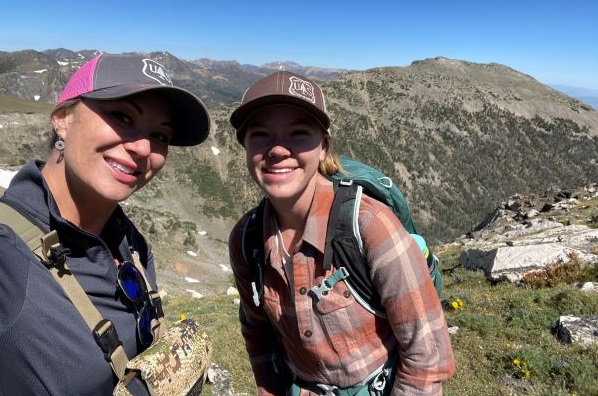Students invited to enroll in Archaeology Field School for Fall 2024

Montana Technological University will offer a new Archaeology Field School course in Fall 2024. Beaverhead-Deerlodge National Forest Historical Archaeologist and Heritage Program Lead Ayme Swartz will teach the course.
“It is a really fun class,” Swartz said. “Anybody with any love for Montana History or Butte history can come. It’s more of a conversation class. It’s not going to be a class with tons of homework. It’s going to be more critical thinking and hands-on experience.”
Students will spend most of their time in the field, learning important archaeological techniques.
“It is a Montana archaeology field experience class,” Swartz said. “There will be 2 hours in the field and one hour in the classroom. I want to look at the Butte underground. When I was a graduate student in Missoula, we went underground, where we documented unrecorded underground spaces occupied by the Chinese. We have a lot of that in Butte, too. I also want to take students out to the forest, and show them not only the historic sites, but the pre-contact, indigenous sites.”
Swartz is a Philipsburg native who started her academic career at Montana Tech in the geological engineering department, but decided to switch her major in search of something she was more passionate about. She holds a B.A. in Anthropology with emphasis in Archaeology, a B.A. in History with an emphasis in the American West, and an M.A. in Anthropology with an emphasis in Archaeology, and M.S. in Geographic Information Systems from Penn State.
The scope of Swartz’s work is vast. Any project that disturbs federal ground requires collaboration with an archaeologist. When engineers build or improve dams, they have to consult with Swartz. When a wildfire breaks out, firefighters have to consult with archaeologists on where they can put containment lines to minimize damage to archaeological sites.
Swartz’s work is critical to the preservation of Camp Caroline, located in the Homestake Pass area, which is the first historic Black community site on National Forest System Lands recorded and documented in the Northern Region.
Swartz says that no matter what the project is, she gives a voice to the voiceless by preserving artifacts that are the last remnants of people who lived decades, centuries, or thousands of years ago. While the word “archaeologist” might bring up imagery of excavating with shovels and brushes, students will learn that digging is not always the best choice.
“We document the landscape, document basement spaces,” Swartz said. “There is excavation, and that’s part of the class. I give students the mental tools to figure out if digging would be necessary, because there are ethical dilemmas with that too. Once it’s dug up, it’s destroyed, so is it worth it? It’s a good exercise for the students.”
Swartz said any student considering working in federal service could benefit from familiarizing themselves with archaeology, especially students in engineering fields who often collaborate with the government’s archaeologists. The course is open to both undergraduate and graduate students. It will be held on Wednesdays from 2 p.m. to 5 p.m. Class size is capped at 20 students. Montana Technological University accepts applications on a rolling basis. To apply, click here.
Anyone with questions can contact Swartz at Ayme.Swartz@gmail.com. Swartz will give a presentation on the archaeological preservation of German Gulch, which was home to a community of Chinese immigrant miners in the late 19th century, at the B'Nai Israel Cultural Center on August 13. The talk starts at 7 p.m.